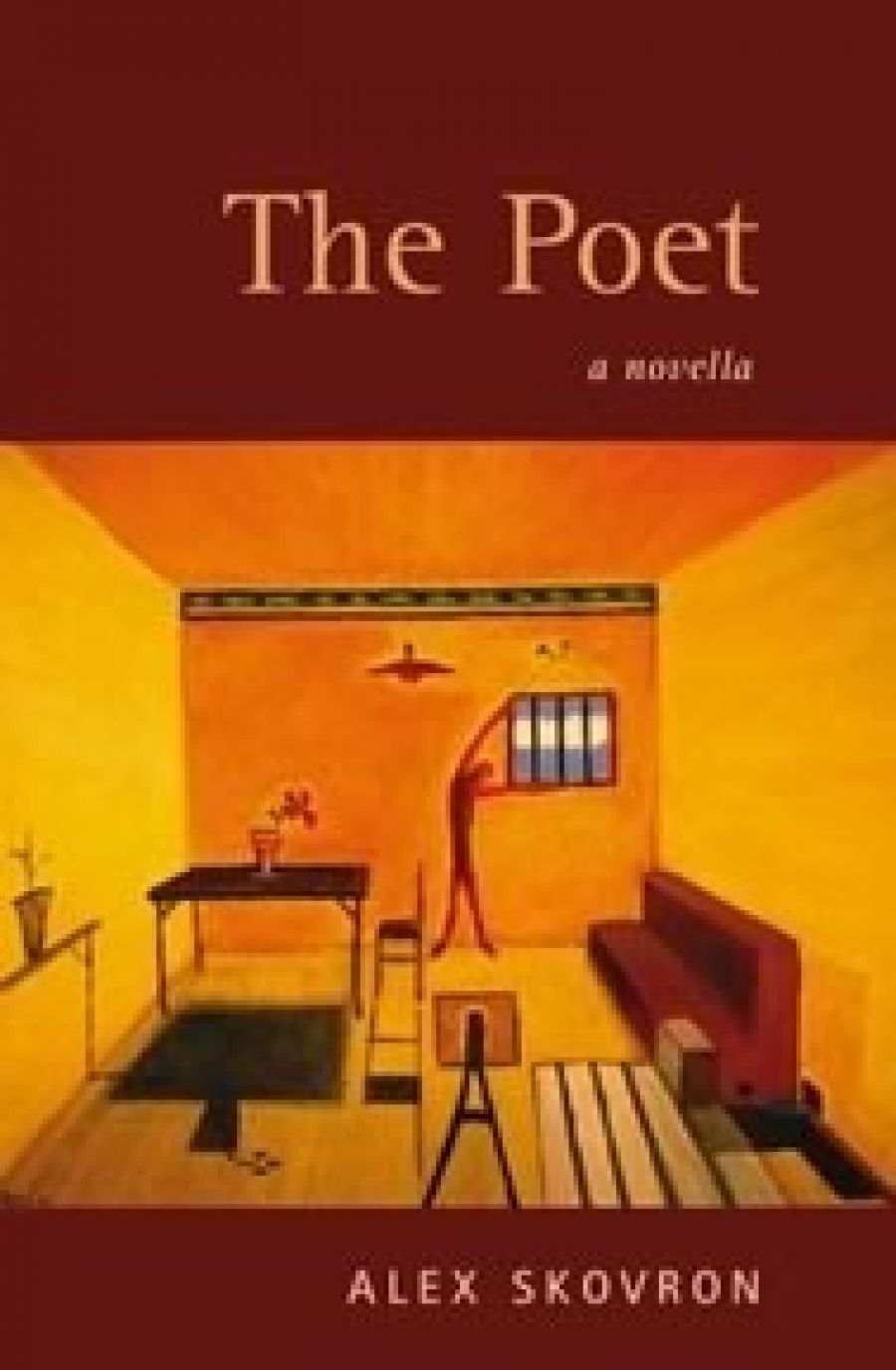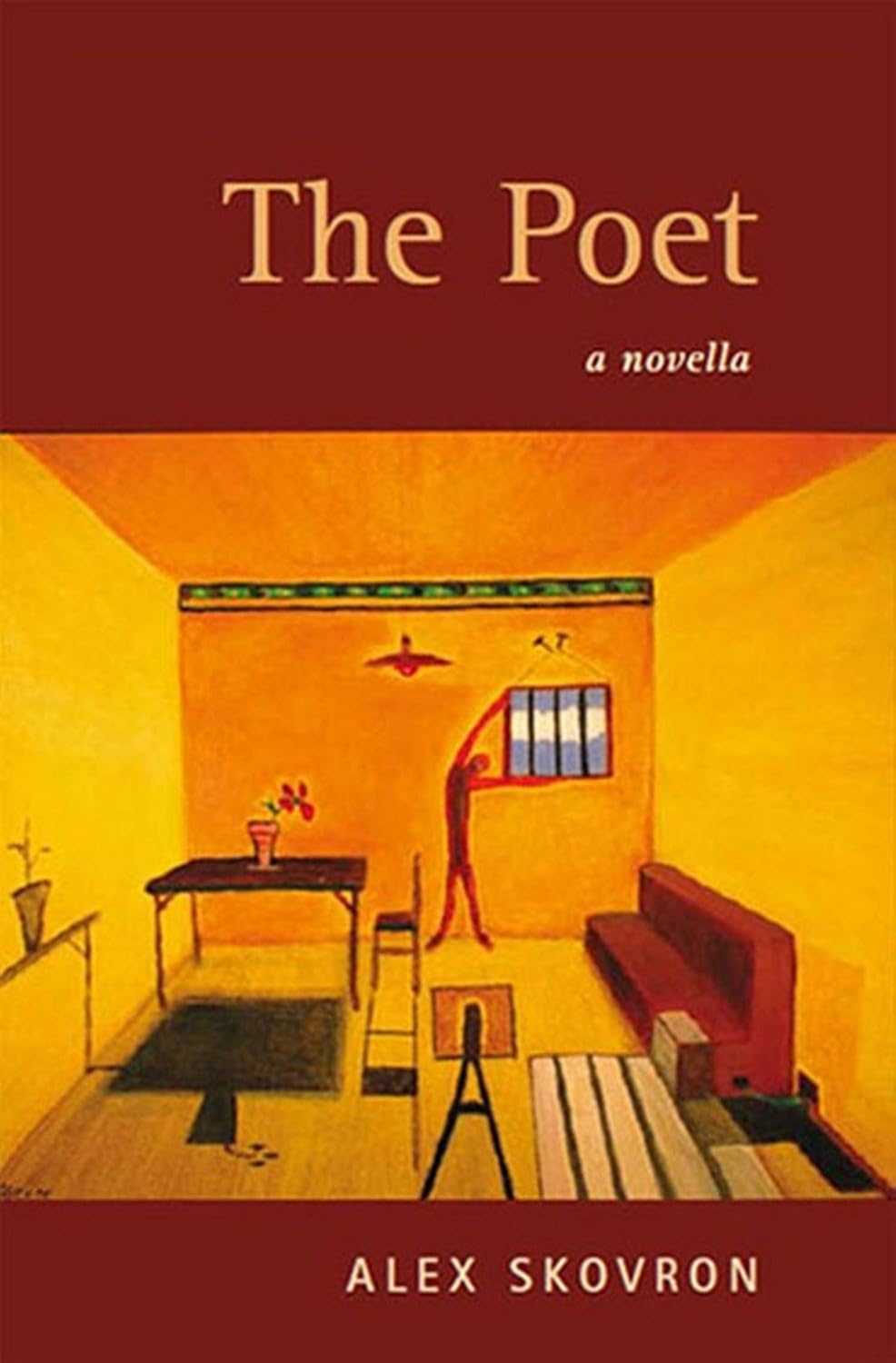
- Free Article: No
- Contents Category: Fiction
- Review Article: Yes
- Article Title: Poetry and obsession
- Online Only: No
- Custom Highlight Text:
The Poet is an unusual book. Dispensing with many of the conventions that underpin most extended works of prose fiction, such as significant characterisation, it presents a central protagonist, Manfred, who is ‘honest’ – as the author repeatedly states. Manfred is also a poet. The novella is written in formal and refined prose, as if the narrative style is designed to reflect Manfred’s obsessional nature and estranged condition: he has never been ‘in love’, is ‘something of a loner’ and is highly anxious.
- Book 1 Title: The Poet
- Book 1 Subtitle: A novella
- Book 1 Biblio: Hybrid Publishers, $19.95 pb, 125 pp, 1876462310
- Book 1 Cover Small (400 x 600):

- Book 1 Cover (800 x 1200):

Alex Skovron is an established Australian poet, and his poetry has previously explored themes centred on art, writing and obsessionality. For example, in the extended title poem of his first collection, The Rearrangement (1988), a bibliophile dwells on the best way to rearrange his books and, by extension, his imaginative world. In the same volume, ‘An Artist’ depicts a ‘crepuscular’ poet who tears the pages from ‘a battered volume’ until he is able to assert: ‘I have written nothing … / It is all in my head.’ Such themes resonate with those Skovron presents in his novella, although in his poetry there is more clearly a fastidious irony at work, qualifying and complicating the different kinds of strangeness the poems depict. Such poetry, at least in part, emphasises the imposing nature of Western cultural and, especially, musical and literary traditions.
In The Poet, Skovron’s precise, at times almost mannered, prose ensures that the reader does not mistake his narrative for ‘reality’. Rather, this book is a kind of parable in which innocence and creativity are shown to be lost in an uncaring post-technological age largely oblivious to art. The core of the novella is Manfred’s encounter with William, ‘a man he had never seen before, dressed too well to be a no-hoper yet too shabbily not to be a drifter of some ilk’. In another work of fiction, such an encounter would be likely to take the narrative in an unexpected direction. In this one, it is no surprise to discover that William, like Manfred, is a lover of classical music and poetry. William is the novella’s most interesting character, because he is to some extent individuated and unpredictable, but he also operates as an externalisation of Manfred’s isolation and unhappiness. He allows Skovron to explore the disjuncture between the uncaring world and the refined and idealised world of art.
While it is impossible to discuss key aspects of The Poet without giving away important aspects of its relatively simple plot, the novella is notable for exploring the importance to a creative writer of being in possession of his work, and for invoking – if not investigating – the idea of literary theft. Notions of authorship and public reputation are examined, as are the methods through which people find and construct their identities. The novella has what might be called a European tone and sensibility. Skovron is no Kafka, but his condensed narrative seems partly an attempt to invoke, with the economy and suggestiveness of such a writer – very different from the more discursive work of many other Australian authors – the disturbed and alienating, maze-like frustrations of modernity. It is a novella about the individual and the city; about the loss of meaning; about the way in which people are driven and altered by circumstances they cannot control. Manfred’s astonishing and sometimes irritating naïveté questions the kinds of sophistications most of us take for granted and how we would survive without them.
The moments of implausibility in The Poet do not much matter if one reads it as a parable for our age. One can enjoy the solipsistic and claustrophobic world that Manfred inhabits as the closely focused portrait of a poet whose access to creativity and order has been crucially disrupted. Skovron is apparently preparing a book-length collection of prose poems; it will be interesting to read such a volume in the light of this novella. He is at his best in The Poet when at his most evocative. There are small, lucid poems concealed in this book and a number of clarified, distilled ideas.


Comments powered by CComment